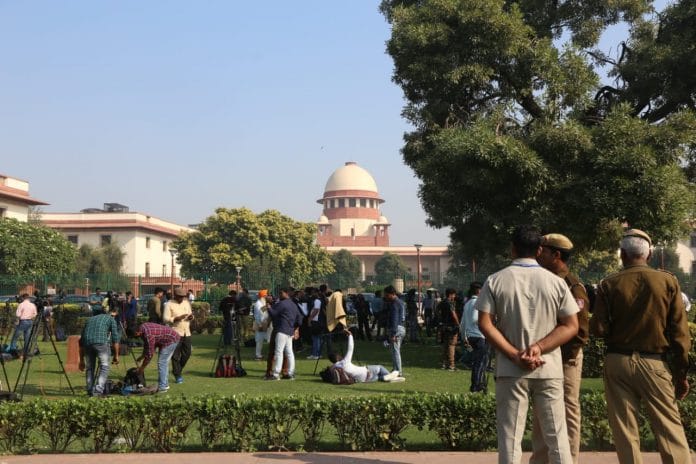New Delhi: The All India Hindu Mahasabha is gearing up to file a review plea against the Supreme Court’s 9 November Ayodhya verdict that granted an alternate five-acre land to the Muslims.
The plea is likely to be filed next week.
The Hindu Mahasabha has two factions — one headed by Swami Chakrapani and the other by Shishir Chaturvedi. The review plea will be filed by the Chaturvedi faction.
Advocate Vishnu Shankar Jain, who represents the Hindu body, is challenging the verdict on two main grounds.
Firstly, the Hindu Mahasabha is going to state in the plea that the case was primarily a title suit, so when the court has given exclusive possession of the inner and outer courtyard to the Hindus, there was no need to grant an alternate land of 5 acres to the Muslims.
Secondly, the Hindu Mahasabha is set to argue that when the question before the ongoing criminal trial is about the destruction of the “Masjid ka Dhaancha” or the upper tomb, then the conclusion arrived at by the top court on 9 November that the mosque in entirety was demolished would have repercussions on that trial.
Also read: Jamiat’s Ayodhya review petition should succeed but won’t. Here’s why
“The court has also held the demolition to be a violation of the rule of law. This itself will have an impact on the ongoing case in Lucknow and, hence, we seek reconsideration on this aspect too,” Jain told ThePrint.
Right after the Supreme Court verdict, which ordered the central government to formulate a scheme in three months to construct a Ram temple on the undisputed site in Ayodhya, the Hindu Mahasabha had called it “a historic” judgement.
“With this judgment, the Supreme Court has given the message of unity in diversity,” it had said.
Apart from the Hindu Mahasabha, the other parties challenging the Supreme Court verdict are the Jamiat-Ulema-i-Hind, independent parties backed by the All India Muslim Personal Law Board and the Peace Party Of India.
Also read: Frustration over Ayodhya verdict is not coming from Muslims but Left-illiberals







Five acres of compensatory land allotment was in any case a red herring. Viewed from the perspective of the minority community, it could hardly constitute “ complete justice “. So it is better to remove the distraction and let the judgment stand on its own feet.